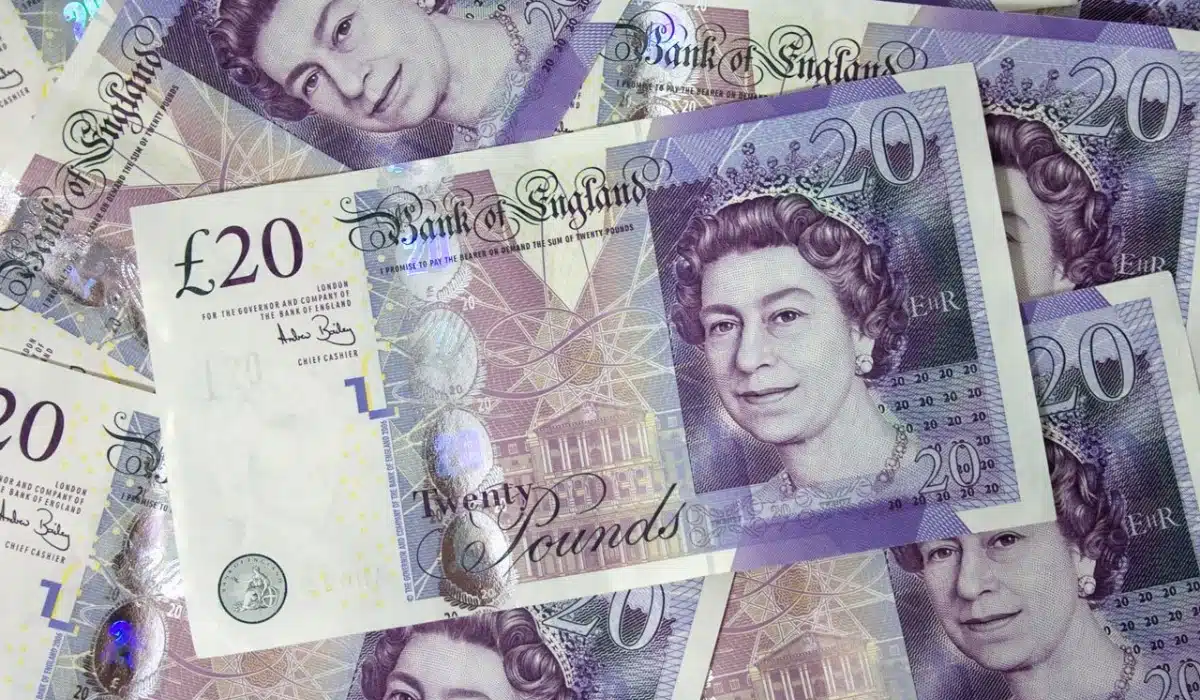- The value of the pound sterling has experienced a rapid recovery due to investors’ renewed interest in taking on higher levels of risk.
- Concerns about a worsening economic downturn in the UK may have a negative impact on the prospects of the Pound Sterling.
- The US Dollar could face ongoing pressure due to the persistent expectations of interest rate cuts by the Federal Reserve.
The Pound Sterling (GBP) is projected to conclude 2023 with a respectable increase of approximately 5.60%. The recent rise in the value of the Pound Sterling can be attributed to the growing confidence and willingness of market participants to take on more risk. A decrease in concerns about a worldwide economic downturn drives this shift in sentiment. It is anticipated that central banks in the Western world will gradually reduce their efforts to increase interest rates due to a decrease in inflationary pressures. This has resulted in a greater interest in assets that are more sensitive to market risks.
The Pound Sterling has shown a more robust performance compared to the US Dollar due to the Bank of England potentially being slower in lowering interest rates compared to other central banks in the Group of Seven economies. The economic conditions faced by policymakers at the Bank of England are deteriorating once again.
This is because the United Kingdom’s economy has entered a technical recession, primarily due to a weakened demand environment. The Bank of England (BoE) may consider implementing an earlier reduction in interest rates to mitigate concerns about potential economic contraction, which could have a notable impact on the future performance of the Pound Sterling.
As the US Dollar Rebounds, the Pound Sterling Continues to Fall
- The value of Pound Sterling has declined due to a decrease in market participants’ willingness to take risks, which low levels of trading activity have further exacerbated.
- The overall demand for the Pound Sterling is buoyant due to the optimistic outlook that there will not be a global recession, as there has been a notable decrease in price pressures.
- Investor sentiment towards risk-perceived assets is currently positive due to the anticipation of potential interest rate reductions by the Federal Reserve.
- It is anticipated that the Federal Reserve will initiate a reduction in borrowing expenses starting in March, as there is a clear downward trend in price pressures within the United States economy.
- The foreign exchange market is anticipated to have limited activity during the final trading session of 2023. However, there is potential for increased volatility next week due to the release of the S&P Global PMI for the manufacturing and service sectors.
- The Pound Sterling is experiencing a rebound as investors anticipate that the Bank of England (BoE) will postpone its plans for interest rate cuts, in contrast to the Federal Reserve and other central banks of the Group of Seven economies.
- The United Kingdom’s relatively high inflation rate is a contributing factor to the expectation that rate cuts will be implemented later in comparison to other G7 nations.
- The United Kingdom’s core inflation rate is currently slightly above 5%. Policymakers are expressing concerns about their ability to achieve price stability within a reasonable timeframe, primarily due to solid wage growth.
- Market participants have already factored in the expectation that the policies of the Federal Reserve and the Bank of England will become less divergent starting in March 2024.
- The Pound Sterling’s increased value compared to the US Dollar may decrease as the UK economy shows signs of entering a technical recession. This could prompt the Bank of England to announce earlier-than-expected interest rate cuts.
- According to updated figures released by the UK Office for National Statistics (ONS), the economy experienced a contraction of 0.1% during the third quarter of 2023.
- The Bank of England (BoE) has projected that there will be no economic growth in the last quarter of 2023. This suggests a strong possibility of a technical recession occurring.
- In the event of a recession, the Bank of England (BoE) may consider adjusting its current monetary policy approach.
- The US Dollar Index (DXY) has experienced a halt in its recovery due to ongoing speculation about potential interest rate cuts by the Federal Reserve. The USD Index has experienced a recovery, approaching the level of 101.40. However, it may decline again, potentially reaching a five-month low of around 100.60.
- The USD Index has experienced significant selling pressure over the past two months. This is due to a shift in the Federal Reserve’s stance on interest rates, with expectations of rate cuts emerging. The central bank is aiming to prevent the adverse effects of excessive tightening.
- During the upcoming week, market participants will closely monitor the ISM Manufacturing PMI and the Employment data for December. These economic indicators will offer valuable insights for the Federal Reserve’s decision-making process during its initial monetary policy meeting of 2024, scheduled for January 31st.
It Is Difficult for the Sterling Pound to Maintain More Than 1.2700
The Pound Sterling is facing challenges in its attempt to recover during the London session following a correction on Thursday. This is due to an increase in market participants’ appetite for risk. The GBP/USD pair is currently targeting a level of 1.2870, which is its highest point in the past five months. There is a possibility of a sustained upward movement in the Cable market, indicated by the positive progression of the 20 and 50-day Exponential Moving Averages (EMAs). Momentum oscillators are indicators that suggest significant upward momentum in the price movement.


